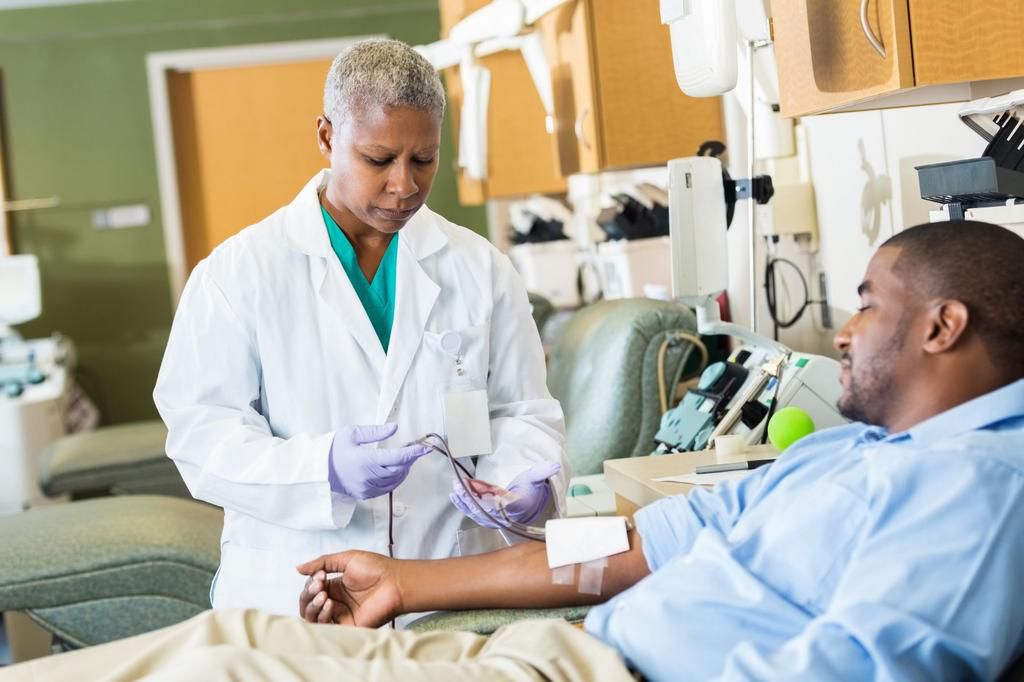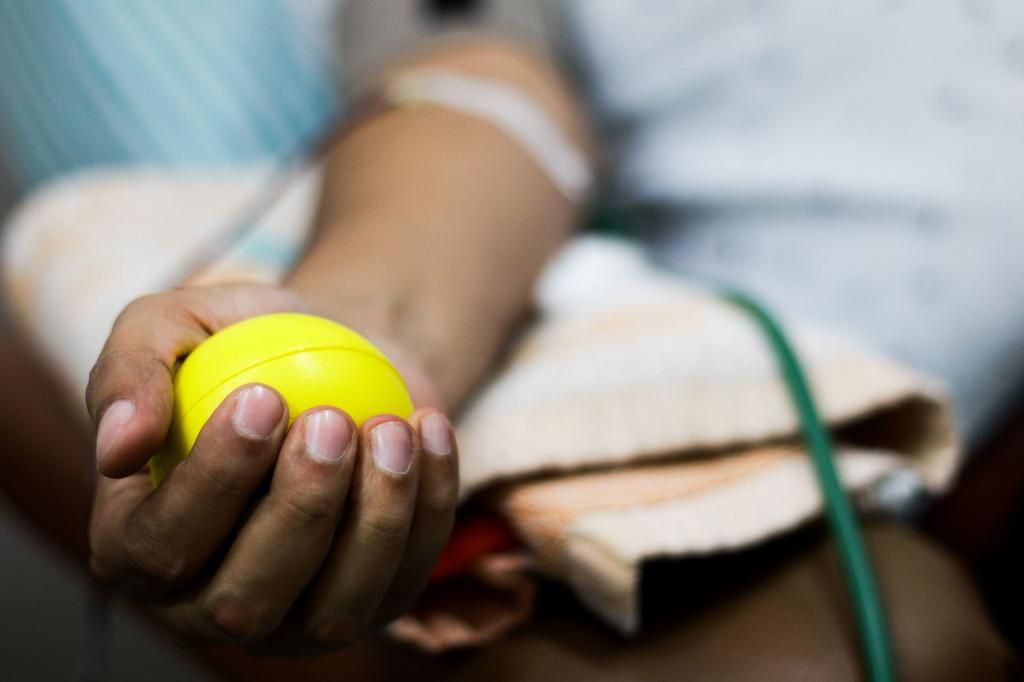The Red Cross Urgently Needs More Blood Donors
)
"We need people to start turning out in force to give blood," says Peter Marks, M.D., Ph.D., director of the U.S. Food and Drug Administration's Center for Biologics Evaluation and Research, in a statement.
That's largely because people are scared to donate blood due to the virus which is, of course, an important concern. But consider this quote , from U.S. Surgeon General Dr. Jerome Adams: "You can still go out and give blood. Were worried about potential blood shortages in the future. Social distancing does not have to mean social disengagement."
It's a quote that, for me, a "sometimes" blood donor, finally pushed me to schedule a donation with my blood bank. Giving blood is giving. If I'm not giving, I'm not exercising that part of myselfa part of my humanitythat helps other humans beings.
I hadn't given blood during shelter-in-place even though I couldand largely due to the very fear that's driving a potential blood and platelet shortage. I was scared, rife with questions: Could I get COVID-19 from giving blood? If I had it, could I give it? I mean, it's a hospital-like setting, and people with COVID-19 go to the hospital. So wouldn't I be putting myself at a higher risk? Would giving blood lower my immunity?
Gratefully, health professionals have already addressed all my questions. Here they are, all in one place, ready to soothe your qualms, and then serve as your motivation to go out and donate. And not just donatebut give.
Schedule a donation through the Red Cross by clicking here .
Can you get COVID-19 from giving blood?

No.
"There are no data or evidence that this coronavirus can be transmissible by blood transfusion, and there have been no reported cases worldwide of transmissions for any respiratory virus including this coronavirus," according to the Red Cross .
Are you putting yourself at higher risk of COVID-19 by donating blood given the hospital-like setting?
No.
The Red Cross has put necessary precautions into place at donation centers in order to minimize risk, which includes, but is not limited to the following.
- Employees wearing gloves and changing them often
- Wiping down donor-touched areas after every collection
- Using sterile collection sets for every donation
- Preparing the arm for donation with aseptic scrub
- Conducting donor mini-physicals to ensure health on day of donation
- Enhanced disinfecting of surfaces and equipment
- Providing hand sanitizer for use before entering and throughout the appointment
- Temperature checks before donors enter the blood drive or donation center
- Following social distancing practices between donors including donor beds, as well as waiting and refreshment areas
- Staff wearing basic face masks
- For the safety of our donor community and in accordance with CDC guidelines, all donors are required to wear a face covering or mask. If you do not have one, a mask will be provided to you.
And, to that point, here's explicitly what the CDC says about those guidelines as they pertain to blood donation centers: "Examples of these recommendations include spacing donor chairs 6 feet apart, thoroughly adhering to environmental cleaning practices, and encouraging donors to make donation appointments ahead of time."
Will giving blood lower my immunity?

No.
"There is no evidence blood donation weakens the immune system," according to the Rhode Island Blood Center.
(Their directness of which sort of makes me feel silly for asking, but still, thanks, Rhode Island Blood Center).

)
)
)
)
)
)